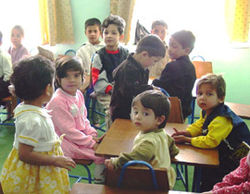Week9.1(4.29Mon)Introduction to Sociology/Socialization(YANGPEIFU)
1. Summary
 Socialization is a lifelong process encompassing both primary and secondary phases. Primary socialization occurs in childhood and adolescence, focusing on core identity and values, while secondary socialization involves adapting to new roles and groups throughout life. Mortimer and Simmons highlight differences in content, context, and response between these phases. Total institutions like prisons aim to resocialize individuals who have not been successfully socialized, characterized by uniformity, strict scheduling, and hierarchical authority. Feral children, lacking socialization due to neglect, underscore the importance of socialization in human development. Theoretical perspectives on socialization include symbolic interactionism, role theory, reinforcement theory, and internalization theory. Recent research suggests children are predisposed to imitate adult behaviors, aiding cultural transmission. Socialization involves acquiring norms, values, and behaviors for group membership and societal compliance. Long and Hadden propose a revised understanding, emphasizing the process of incorporating new members into groups led by certified members and addressing criticisms of previous conceptualizations. Socialization research spans various aspects, including gender, social class, death preparation, and education tracks. Ellis, Lee, and Peterson explored how social class influences parenting styles, finding that lower-class parents emphasize conformity, while middle-class parents prioritize creativity and self-reliance. Erlanger investigated the correlation between social class and physical violence, debunking outdated notions about working-class authoritarianism and child punishment. Marshall's study on death preparation in retirement homes revealed how the environment shapes residents' perceptions of mortality, fostering acceptance and courage. Rosenbaum examined the impact of high school tracks on IQ, showing that students in lower tracks may experience a decline in IQ compared to those in higher tracks, highlighting the socializing role of educational systems. Overall, socialization is crucial for human development, shaping individuals' behaviors, values, and identities. Cultural relativity underscores the diverse social norms worldwide, while instances of social isolation emphasize the profound impact of socialization on human functioning.
Socialization is a lifelong process encompassing both primary and secondary phases. Primary socialization occurs in childhood and adolescence, focusing on core identity and values, while secondary socialization involves adapting to new roles and groups throughout life. Mortimer and Simmons highlight differences in content, context, and response between these phases. Total institutions like prisons aim to resocialize individuals who have not been successfully socialized, characterized by uniformity, strict scheduling, and hierarchical authority. Feral children, lacking socialization due to neglect, underscore the importance of socialization in human development. Theoretical perspectives on socialization include symbolic interactionism, role theory, reinforcement theory, and internalization theory. Recent research suggests children are predisposed to imitate adult behaviors, aiding cultural transmission. Socialization involves acquiring norms, values, and behaviors for group membership and societal compliance. Long and Hadden propose a revised understanding, emphasizing the process of incorporating new members into groups led by certified members and addressing criticisms of previous conceptualizations. Socialization research spans various aspects, including gender, social class, death preparation, and education tracks. Ellis, Lee, and Peterson explored how social class influences parenting styles, finding that lower-class parents emphasize conformity, while middle-class parents prioritize creativity and self-reliance. Erlanger investigated the correlation between social class and physical violence, debunking outdated notions about working-class authoritarianism and child punishment. Marshall's study on death preparation in retirement homes revealed how the environment shapes residents' perceptions of mortality, fostering acceptance and courage. Rosenbaum examined the impact of high school tracks on IQ, showing that students in lower tracks may experience a decline in IQ compared to those in higher tracks, highlighting the socializing role of educational systems. Overall, socialization is crucial for human development, shaping individuals' behaviors, values, and identities. Cultural relativity underscores the diverse social norms worldwide, while instances of social isolation emphasize the profound impact of socialization on human functioning.
2. Project
The case studies of Genie and Oxana highlight the critical role of socialization in human development. Genie, discovered in 1970, experienced extreme neglect and isolation from infancy, leading to severe developmental delays, including language acquisition. Similarly, Oxana, found in Ukraine in the 1980s, lived with dogs from age three to eight due to parental neglect, resulting in animal-like behaviors and delayed language skills. These cases underscore the necessity of human interaction for healthy socialization. Socialization is essential for acquiring language, developing cognitive abilities, and forming social bonds. The chapter delves into different types of socialization, including primary and secondary, and explores theoretical perspectives on socialization such as symbolic interactionism and role theory. Additionally, key studies in the field shed light on how social class, death preparation, and educational tracks influence socialization outcomes. Overall, the chapter emphasizes the profound impact of socialization on individuals' lives and underscores the importance of human connection for healthy development.
3. Question
Who socialized you into society and how did they do it?
Comments
Post a Comment